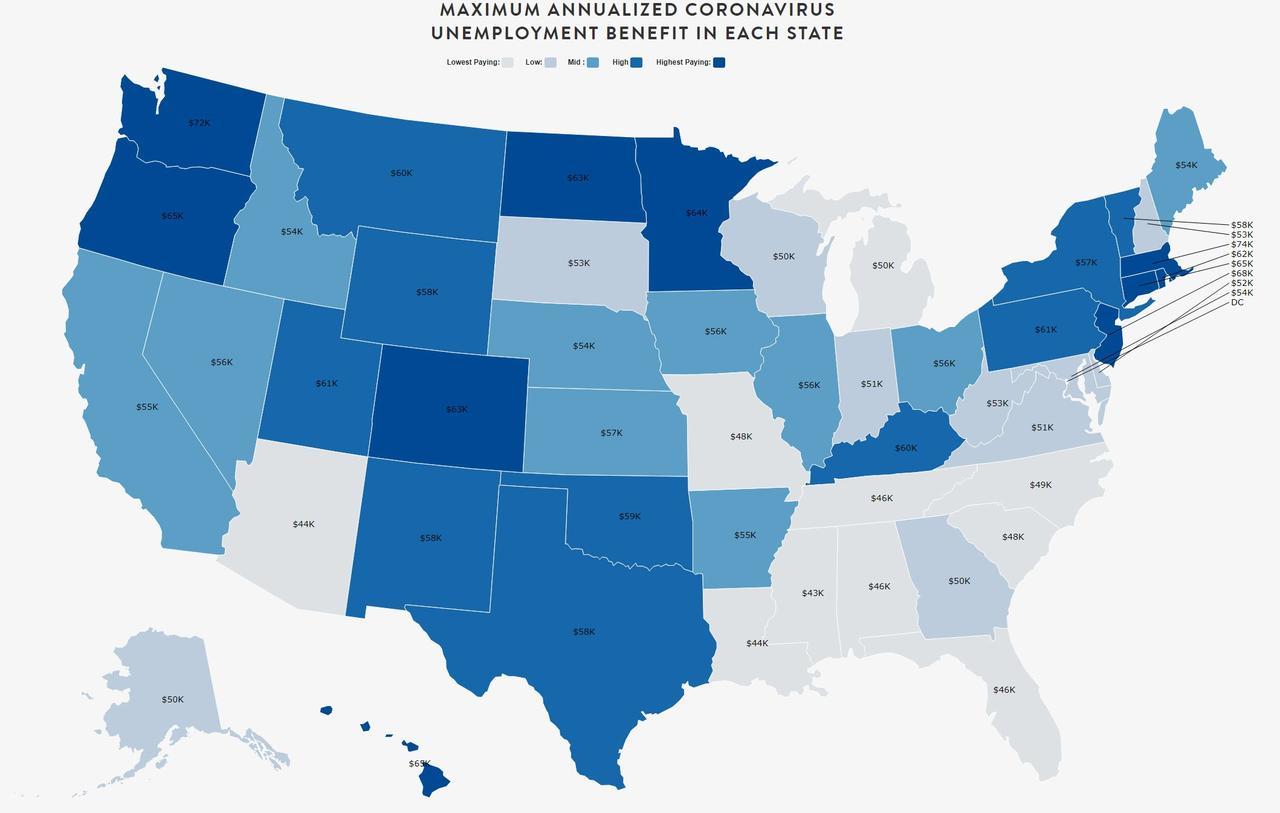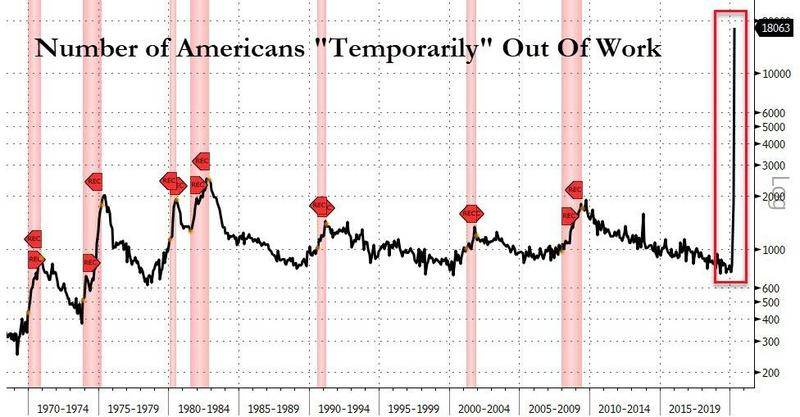Businesses Discover Employees Would Rather Stay Home And Collect Unemployment During Pandemic
Just as we warned would happen, US employers looking to reopen during the pandemic are finding that employees would rather sit home and collect unemployment than come back to work.
According to the Wall Street Journal, unemployment benefits for some workers are now paying more than their old jobs did – while for others, safety concerns or difficulty finding childcare amid mass school closures have kept them from returning to work.
That means reopening may not go as quickly or as smoothly as some elected officials and business owners had hoped.
Friday’s jobs report showed that U.S. employers cut 20.5 million jobs in April, or nearly all of the 22 million jobs added in the past decade.
The longer it takes to recover that lost employment, the more extended the economic downturn caused by the pandemic will be.
“That’s going to get in the way of any real recovery,” said Douglas Holtz-Eakin, president of American Action Forum and former director of the Congressional Budget Office. –Wall Street Journal
Thanks to the March CARES Act which boosted unemployment benefits by $600 per week, around half of all US workers stand to take in more money while laid off than they did before the pandemic – at least until that increase expires at the end of July.
Meanwhile, states have been allowed to provide 13 additional weeks of federally funded unemployment benefits on top of the typical 26 weeks allowed before the pandemic. States with high unemployment may extend this further – and include workers who wouldn’t normally qualify for regular unemployment compensation, such as those who are self-employed.
Further complicating matters is the Paycheck Protection Program – federal loans to employers which are forgiven if they are able to bring back all workers within eight weeks of receiving the funds. One such borrower, Julie Crowley, owner of Triphammer Wines & Spirits and co-owner of the Ithaca Coffee Co., says she needs to hire 12 workers back from both businesses in order to satisfy the terms of her PPP loan.

One employee of Crowley’s, Ilona Luce-Fina, was making $12.50 per hour. Thanks to the weekly unemployment bonus, however, she’s bringing in the equivalent of $15 an hour.
Ms. Luce-Fina, who lives with her two teenage daughters and pays $1,650 a month in rent, said she has so far received two weekly payments of $816 each in unemployment benefits since being laid off on March 26. She had worked on weekends as a face-painting artist at a children’s entertainment company, but the pandemic has stopped that business, too. She says she now fears going back to work at the airport and risking coming into contact with infected people. –Wall Street Journal
“Do you call your employees back and expect them to take a pay cut and be a happy camper?” said Crowley. “People are all going to do what’s in their best interest. It’s in my best interest to get them back on my payroll.”
Meanwhile, over 18,000 Americans believe their unemployment situation to be temporary – even if many are in resistance to actually returning to their jobs. And when the $600 stimulus ends – if it ends, those ducking work to collect the boosted unemployment better hope that that their job is still waiting.
In South Dakota, the Department of Labor and Regulation issued a fraud warning in April after several employers notified them that workers receiving benefits were refusing to return to work. According to the state’s labor and regulation secretary, Marcia Hultman, the warning was issued because so many people are requesting unemployment benefits for the first time. “The intent of the unemployment-insurance program at any time is temporary assistance until you can return to work,” she said.
Meanwhile, Iowa governor Kim Reynolds and Nebraska governor Pete Ricketts have announced that full unemployment benefits won’t be available to those who are refusing to return to work after being called back.
“It just puts employers in an awful position,” said Pittsburgh business owner Les Nielly, whose company makes awnings and tarps for the trucking industry. Some of Nielly’s employees have asked if they could rotate onto unemployment to earn as much as their laid-off co-workers. “There’s a big resentment there. They’re missing out on a lot of money.”
Tyler Durden
Fri, 05/08/2020 – 16:25
via ZeroHedge News https://ift.tt/3dqFsuE Tyler Durden

